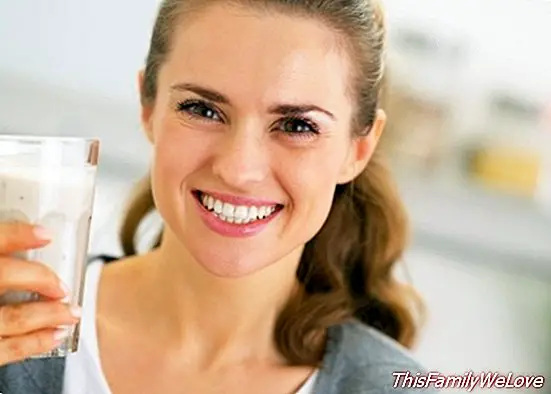Strong bones: food and basic care

The bones they are an important part of the human body. They do not see or think much about them, but there they are, fulfilling the function of sustaining us. For this reason, taking care of them and strengthening them is important for our health and thus we will avoid problems of lack of calcium or fractures. In Spain, 80 percent of women have a decrease in bone density. Vitamin D is a great ally to keep bones strong and healthy.
Physical activity keeps bones strong
A recent study conducted by Pennsylvania State University and the University of Cambridge has shown that the bones of modern humans are more fragile than those of non-human primates and our hunter-gatherer ancestors, and the fault is the agricultural revolution. Researchers at Pennsylvania State University and the University of Cambridge compared the upper part of the femur, where the long bone joins the hip, in samples from early farmers, foraging populations and non-human primates. CT scans showed that hunter-gatherer bone was much denser than that of more sedentary farmers.
In addition, in the Proceedings of the National Academy of Sciences, the researchers pointed out that different activity patterns show a significant difference in bone structure and the findings suggest that physical activity, especially during youth, is essential for the formation of strong bones. lifelong.
Bone density marks the degree of bone strength
Bone density indicates the greater or lesser strength of the bone, its strength and degree of fragility. During the first 25-30 years of life of people the bone mass increases, it does so to a greater or lesser extent depending on the physical activity, and the intakes of calcium and vitamin D that are made. During the 4th decade of life, bone mass remains constant, but after 40 years the calcium loss is greater than before. In women, during the first 5 years of postmenopause, bone loss is between 2 and 6 percent per year. It is a particularly critical period for women, since their lower bone mass, compared to that of men, is compounded by the loss of estrogen (female hormones). In Spain, 80 percent of women have a decrease in bone density.
To help maintain adequate bone density and avoid osteoporosis, numerous scientific evidences support the fundamental role of a balanced diet and especially of a diet rich in calcium and vitamin D.
Failures in vitamin D intake for bones
Vitamin D is a great ally to keep bones strong and healthy. However, today there are several failures in the diets we carry that directly affect the intake of this vitamin. These errors are the following:
- Scarce food sources: Vitamin D is found naturally in a few foods (fatty fish, egg yolk, liver and butter).
- Rejection of fatty foods: precisely foods rich in vitamin D are avoided in the female diet, because of its high fat content.
- Aging of the skin: with age, the skin loses its ability to synthesize. In addition, it must be added that one of the main sources of obtaining vitamin D is sun exposure.
Basic care for bones
- Do not forget calcium in your diet. The amount to be consumed varies according to age and sex, but may vary between 600 and 1000 mg. If you think about adding vitamin D, consult with a specialist beforehand, who will recommend a supplement if necessary.
- Take some time to exercise. It is advisable, at least, a half hour daily of moderate exercises, such as walking at a good pace.
- Strength training is also beneficial. Strength exercises, at least twice a week, are very helpful in strengthening the bones.
- Bone density study. It is advisable that women in the period of menopause or who are around 50 years, make a study of bone density. In this way it can be checked in what state the bones are and osteoporosis will be prevented or treated.
- Monitor the amount of salt you take. Excessive consumption contributes to the loss of calcium in the body.
- Avoid tobacco and moderate alcoholic beverages.
Functional food for bones
It is considered a functional food when, in addition to its nutritional properties, it contains certain ingredients whose daily consumption within a balanced diet contributes to maintaining or improving our state of health and well-being or to reducing the risk of disease.
To help bones, there are also functional foods that contribute to their strengthening because they improve the absorption of calcium and enhance bone mineralization.For example, some yogurts are designed to help ensure in an easy way the calcium and vitamin D that women require after 40 years.
Teresa Pereda
You may also like:
- Menopause: how to fight the symptoms
- Menopause: demolishing myths
- How to prevent osteoporosis
- The effects of menopause on the skin




